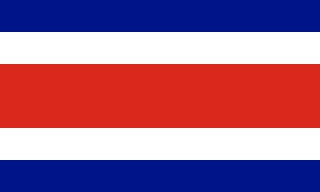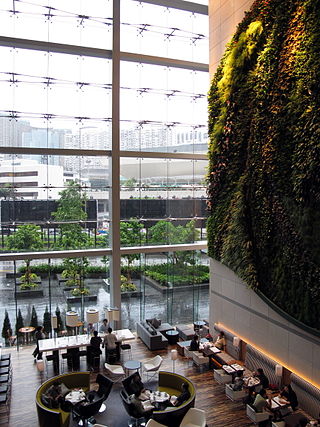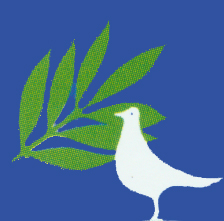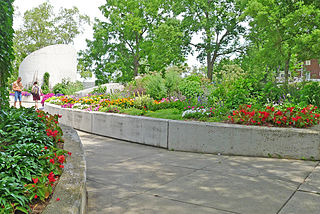
Costa Rica, officially the Republic of Costa Rica, is a country in the Central American region of North America. Costa Rica is bordered by Nicaragua to the north, the Caribbean Sea to the northeast, Panama to the southeast, and the Pacific Ocean to the southwest, as well as maritime border with Ecuador to the south of Cocos Island. It has a population of around five million in a land area of 51,060 km2 (19,710 sq mi). An estimated 333,980 people live in the capital and largest city, San José, with around two million people in the surrounding metropolitan area.

The economy of Costa Rica has been very stable for some years now, with continuing growth in the GDP and moderate inflation, though with a high unemployment rate: 11.49% in 2019. Costa Rica's economy emerged from recession in 1997 and has shown strong aggregate growth since then. The estimated GDP for 2023 is US$78 billion, up significantly from the US$52.6 billion in 2015 while the estimated 2023 per capita is US$26,422.

Ecotourism is a form of tourism marketed as "responsible" travel to natural areas, conserving the environment, and improving the well-being of the local people. The stated purpose may be to educate the traveler, to provide funds for ecological conservation, to directly benefit the economic development and political empowerment of local communities, or to foster respect for different cultures and human rights.

Greenwashing, also called "green sheen", is a form of advertising or marketing spin in which green PR and green marketing are deceptively used to persuade the public that an organization's products, aims and policies are environmentally friendly. Companies that intentionally take up greenwashing communication strategies often do so in order to distance themselves from their own environmental lapses or those of their suppliers.
The Royal Society for The Conservation of Nature (RSCN) is an independent voluntary organization that is devoted to the conservation of Jordan's natural resources; it was established in 1966 with the late King Hussein as Honorary President.

Tamarindo is a district of the Santa Cruz canton, in the Guanacaste province of Costa Rica, located on the Nicoya Peninsula. The town of Tamarindo is the largest developed beach town in Guanacaste. Main attractions in the area are surfing and eco-tourism.
Formed in December 1999, Acción de Lucha Anti-Petrola (ADELA) is a Costa Rican grassroots environmental group created to oppose offshore oil exploration and drilling. Translated into English as "Anti-Petroleum Action," ADELA is named after a local indigenous woman who was "struggling to defend her culture and local environment against outside forces." ADELA initially consisted of 30 local citizen's groups ranging from farmers' organizations and the fisherman's union, to religious groups, small business owners, and marine biologists. ADELA now comprises over 100 local citizens' organizations. The various groups came together to form ADELA after becoming aware of the negative environmental impact of seismic reflection explorations being conducted by Harken Costa Rica Holdings in November 1999.

Ecotourism is the concept of responsible trips and travel to areas that might be protected and especially fragile. The intent is to create as little detrimental impact on the environment as possible. South Africa has used ecotourism to sustain and improve its immense biodiversity, as well as invigorate its economy. Tourism is the fourth largest generator of foreign exchange in South Africa, and ecotourism is the idea of encouraging visitors while promoting and supporting a country's biodiversity. South Africa contains a lot of biodiversity, and so ecotourism is a way for the country to benefit from wildlife in a non-consumptive and legal manner as opposed to illegal activities like poaching and trafficking for the international wildlife trade.
Rural tourism is a tourism that focuses on actively participating in a rural lifestyle. It can be a variant of ecotourism. Many villages can facilitate tourism because many villagers are hospitable and eager to welcome or host visitors. Agriculture has become more mechanized and requires less manual labor. This trend is causing economic pressure on some villages, which in turn causes young people to move to urban areas. There is however, a segment of the urban population that is interested in visiting the rural areas and understanding the lifestyle.
International Student Volunteers (ISV) is a voluntourism not-for-profit organization based in Yorba Linda, California. It provides educational volunteer and travel adventure programs to university students and youth internationally. ISV has offices in each host country it operates in and is also established in Australia as International Student Volunteers Pty Ltd with a head office in Sydney.

Tourism in Costa Rica has been one of the fastest growing economic sectors of the country and by 1995 became the largest foreign exchange earner. Since 1999, tourism has earned more foreign exchange than bananas, pineapples and coffee exports combined. The tourism boom began in 1987, with the number of visitors up from 329,000 in 1988, through 1.03 million in 1999, over 2 million in 2008, to a historical record of 2.66 million foreign visitors in 2015. In 2012, tourism contributed with 12.5% of the country's GDP and it was responsible for 11.7% of direct and indirect employment. In 2009, tourism attracted 17% of foreign direct investment inflows, and 13% in average between 2000 and 2009. In 2010, the tourism industry was responsible for 21.2% of foreign exchange generated by all exports. According to a 2007 report by ECLAC, tourism contributed to a reduction in poverty of 3% in the country.

An eco hotel, or a green hotel, is an environmentally sustainable hotel or accommodation that has made important environmental improvements to its structure in order to minimize its impact on the natural environment. The basic definition of an eco-friendly hotel is an environmentally responsible lodging that follows the practices of green living. These hotels have to be certified green by an independent third-party or by the state they are located in. Traditionally, these hotels were mostly presented as ecolodges because of their location, often in jungles, and their design inspired by the use of traditional building methods applied by skilled local craftsmen in areas, such as Costa Rica and Indonesia.

Hotel ratings are often used to classify hotels according to their quality. From the initial purpose of informing travellers on basic facilities that can be expected, the objectives of hotel rating have expanded into a focus on the hotel experience as a whole. Today the terms 'grading', 'rating', and 'classification' are used to generally refer to the same concept, that is to categorize hotels.

Ecotourism is a key component of the tourism industry in Costa Rica. By the early 1990s, Costa Rica became known as the poster child of ecotourism. The country is among many developing nations that look to ecotourism as a way of cashing in on the growing demand for this popular trend of travel.

Sri Lanka Ecotourism Foundation is a national association of Sri Lanka that aims to create a wide network of ecotourism actors throughout the country. The organization focuses on developing the economic and social development of rural communities through tourism.

The Mesoamerican Society for Ecological Economics (SMEE) is a regional chapter of the International Society for Ecological Economics (ISEE). After its foundation in 2008 at Guatemala City, the organization has already celebrated its first International Conference in 2010 at Mexico City and will carry out the second International Conference, EcoEco Alternatives, between March 4 and 8 2014 at the main campus of the University of Costa Rica.

Ecotourism in Jordan has grown tremendously due to environmental pressures and the demand for jobs outside of the cities, especially since the establishment of the Dana Biosphere in 1993, the first biosphere reserve.
Reinas de Costa Rica is a national beauty pageant in Costa Rica that selects representatives to the Miss World and Miss International pageant. After the Miss Costa Rica pageant stopped sending contestants to the Miss World and Miss International pageants in 2006, the franchise was acquired by the Reinas de Costa Rica organization presided by Alan Aleman. However, after two years of absence in the Miss World pageant in 2017-2018, the organization eventually lost the franchise to the newly established contest, Concurso Nacional de Belleza de Costa Rica, in 2019. The organization also lost the Miss Earth franchise to Jose Vásconez in 2016.
Miss Asia Pacific International 2018 was the third edition of Miss Asia Pacific International after its 2016 re-launch.

Urban ecotourism is a relatively new form of ecotourism that takes place in urban settings. The concept first appeared in 1996 when the Blackstone Corporation defined it as “[...] travel and exploration within and around an urban area that offers visitors enjoyment and appreciation of the city's natural areas and cultural resources, [...] promotes the city's long-term ecological health [...] promotes sustainable local economic and community development and vitality; [...] is accessible and equitable to all”. Urban ecotourism shares the same goals for sustainability and community development as traditional ecotourism, but applies them to large cities, industrial wastelands, and post-productivist agriculture sites, as opposed to more nature-based venues for traditional ecotourism. Destinations in these locations may take the form of linear parks, farm-to-table restaurants, rewilding parks, biking and hiking trails, sustainable hotels, and rooftop gardens.












